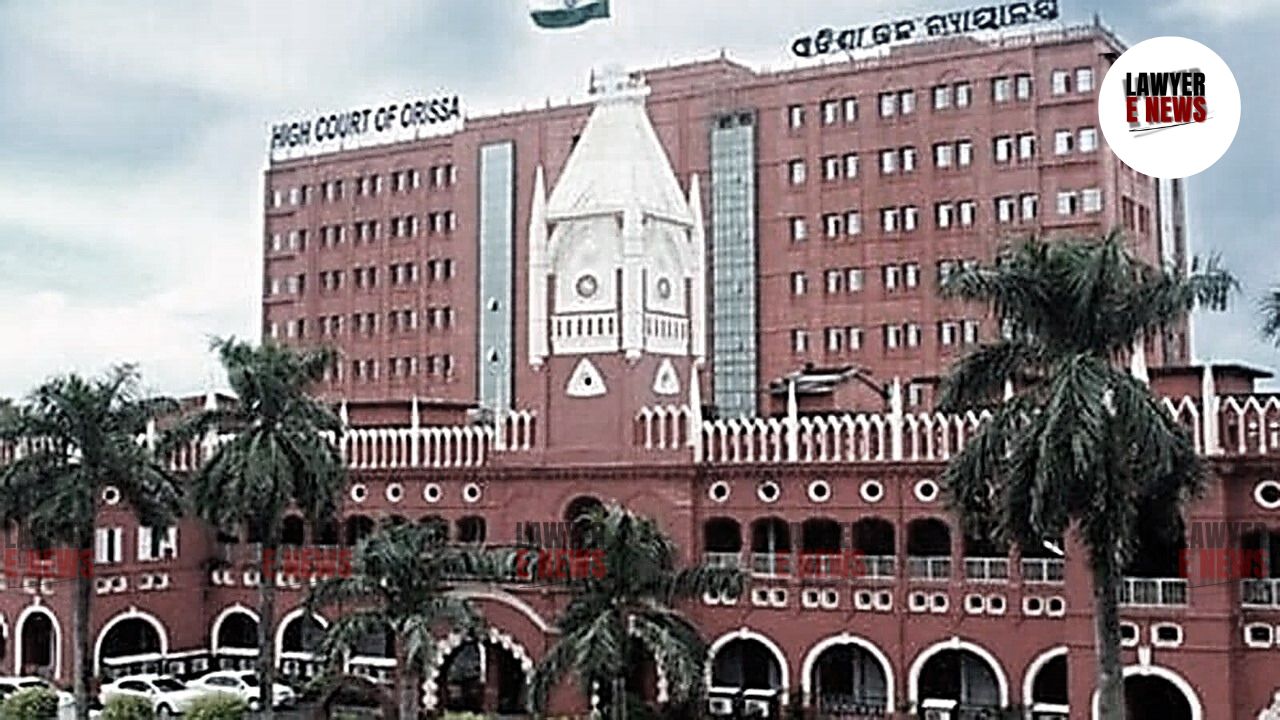-
by Admin
15 February 2026 5:35 AM



Contributory Negligence Plea Rejected Due to Lack of Evidence: Full Liability Fixed on Insurer - Orissa High Court revised the compensation awarded by the Motor Accident Claims Tribunal (MACT), Puri, in connection with the death of a pillion rider in a motor vehicle accident. Justice G. Satapathy reduced the compensation from ₹8,43,000/- to ₹7,21,000/-, recalculating the income of the deceased based on prevailing minimum wages. The Court also upheld the insurer’s full liability, rejecting the plea of contributory negligence for lack of evidence.
The deceased, Bhami Das, was riding as a pillion on a motorcycle when the vehicle was hit from behind by another motorcycle on February 25, 2014, resulting in her death. The claimants (her husband and children) filed a compensation claim under Section 166 of the Motor Vehicles Act, 1988, seeking ₹8,75,000/-. The MACT awarded them ₹8,43,000/- with 6% interest from the application date (April 2, 2014), prompting the insurer to appeal.
The High Court revised the compensation, holding: “The monthly income of the deceased was taken as ₹4,500/- based on the prevailing minimum wage instead of ₹5,200/- as calculated by the Tribunal. After deducting 1/3rd for personal expenses, the annual dependency loss was computed as ₹45,000/- and multiplied by 14. Adding ₹91,000/- under general damages, the compensation was recalculated as ₹7,21,000/- with 6% simple interest.” [Paras 5-6]
The insurer argued that the accident involved contributory negligence, claiming 50:50 liability between the offending motorcycle and the vehicle carrying the deceased. However, the High Court rejected the plea, noting that the insurer neither pleaded contributory negligence before the MACT nor presented any evidence to support its argument.
The Court emphasized: “The insurer advanced the plea of contributory negligence but tendered no evidence to prove it, nor was any material produced to show that the vehicle carrying the deceased contributed to the accident. In the absence of such evidence, the insurer cannot avoid full liability.” [Para 4]
The High Court reassessed the compensation based on the following factors:
Income of the Deceased: The Tribunal had estimated the deceased’s income at ₹5,200/- per month (₹200/day for 26 working days). The High Court reduced it to ₹4,500/- based on the minimum wage for a daily laborer in 2014 (₹150/day).
Future Prospects: A 25% increase was added to the monthly income, bringing it to ₹5,625/-.
Personal Expenses Deduction: 1/3rd of the income was deducted for personal and living expenses, leaving ₹3,750/- as the monthly dependency income.
Multiplier: Applying a multiplier of 14 (for the deceased’s age of 45 years), the total dependency loss was calculated at ₹6,30,000/-.
General Damages: Non-pecuniary damages (loss of consortium, funeral expenses, etc.) were revised to ₹91,000/- after accounting for a 10% increase every three years since the accident.
The High Court directed the insurer to deposit the revised compensation of ₹7,21,000/- with 6% interest from April 2, 2014, within 60 days. Upon compliance, the statutory deposit made during the appeal would be refunded to the insurer. The Tribunal was instructed to disburse the compensation proportionately among the claimants. [Para 6]
The appeal was allowed in part. The compensation was reduced to ₹7,21,000/-, maintaining the interest rate of 6% from the date of filing the application. The insurer’s plea for contributory negligence was rejected due to lack of evidence, and full liability was fixed on the insurer.
Date of Decision: January 10, 2025
